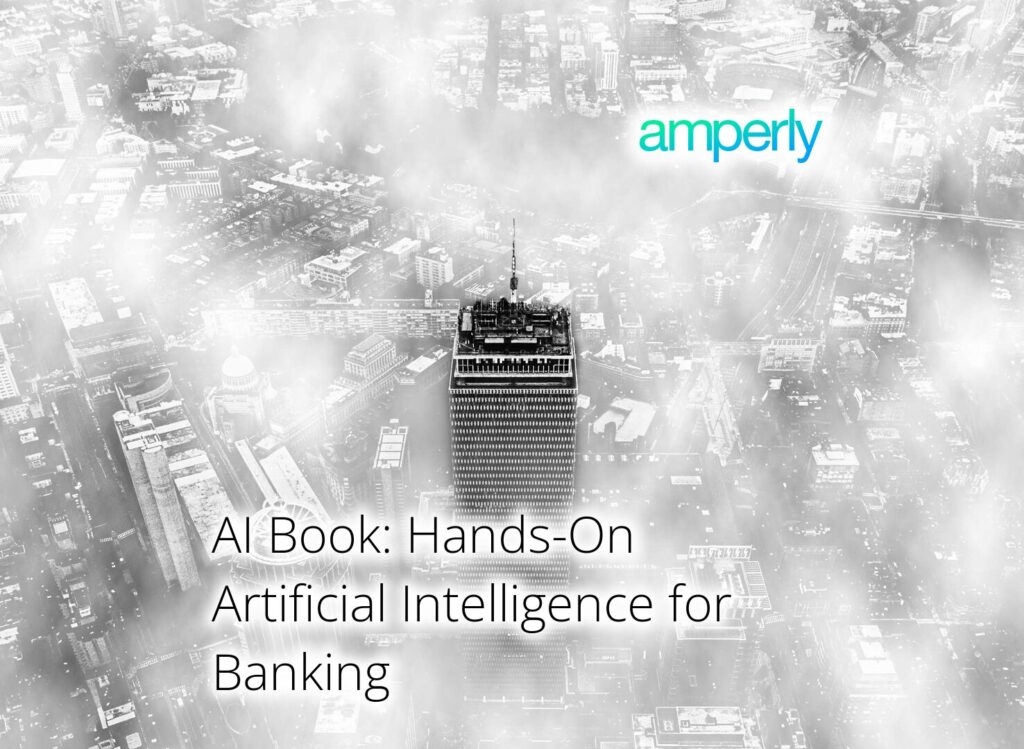Applications of artificial intelligence are transforming the banking industry, and it’s time for you to tap into these innovations. From fraud detection to enhancing customer experience, AI tools can make your work more efficient. Let’s dive into how AI can benefit your day-to-day tasks and elevate your bank’s operations.

You’ll find more insights on AI’s role in risk management and credit scoring here AI for Credit Scoring and Underwriting. You can learn more about how AI is transforming fraud detection in banking here AI in fraud detection.
AI in Banking Operations
Fraud Detection Enhancement: AI significantly improves fraud detection by monitoring behavioral patterns to spot unusual activities. Banks see these applications of artificial intelligence as essential, with AI detecting 90% of fraud attempts accurately. Reducing losses from fraud directly boosts profitability and secures customer trust.
Customer Inquiry Management: AI-powered chatbots effectively manage customer inquiries, easing the load on human staff. Implementing these applications of artificial intelligence leads to a 20% reduction in response times. Faster service improves customer satisfaction and retention, increasing overall revenue for banks.
AI for Credit Scoring and Underwriting
AI for Credit Scoring and Underwriting: Machine learning algorithms assess various data sources to enhance credit evaluations. The integration of AI can lead to improved customer satisfaction and approval rates, with certain platforms, like Upstart, employing AI systems for underwriting effectively. Implementing these applications of artificial intelligence can separate your bank from competitors by delivering tailored loan products.
Algorithmic Trading: AI systems are reshaping trading practices, capable of executing millions of trades daily without human input. High-frequency trading is becoming increasingly prevalent, allowing funds to leverage data quickly; this sector is projected to grow significantly. Bank employees should understand the applications of artificial intelligence to improve investment strategies and decision-making processes.
Algorithmic Trading and Investment Strategies
Algorithmic Trading and Investment Strategies: Applications of artificial intelligence let banks execute large volumes of trades in seconds. This automated trading scales up profits while offering precision no human can match. AI handles millions of daily trades, boosting efficiency significantly.
AI for Credit Underwriting: Applications of artificial intelligence improve how banks assess credit risk. Tools like ZestFinance’s ZAML platform analyze customer data, delivering credit scores even for those with minimal credit history. This method helps banks mitigate risk, resulting in fewer loan defaults and a decrease of fraud detection issues by over 90%.
AI-Driven Compliance and Regulatory Processes
AI-Driven Compliance and Regulatory Processes: AI systems improve compliance by enabling real-time checks, helping you catch regulatory issues before they grow. This application of artificial intelligence can reduce regulatory breaches by up to 50% in some institutions. Accurate and timely compliance checks enhance trust and integrity in your financial operations.
The focus on compliance is crucial because it safeguards your institution from risks that can harm reputation and profitability. Better compliance helps streamline processes, allowing teams to focus on core banking activities rather than being bogged down in reviews and checks. What measures does your bank take to ensure real-time compliance?
AI in Automated Trading and Investment Decisions: Automated trading powered by AI enables institutions to make decisions at extraordinary speeds, improving efficiency. Banks leveraging algorithmic trading can see profits increase by tens of millions each year due to faster transaction times and better market access. This application of artificial intelligence not only enhances trading accuracy but also low-cost investment management.
The investment sector’s rapid adoption of AI reflects a shift toward data-driven decision-making that can lead to substantial financial gains. As you consider incorporating these technologies, think about how your institution can optimize processes to stay competitive. How is your bank currently managing its trading strategies?
Personalization of Customer Experiences
Personalization of Customer Experiences: AI analyzes customer data to tailor recommendations, improving engagement and increasing sales. This approach leads to enhanced customer satisfaction and loyalty, which can directly contribute to a revenue increase. Implementing applications of artificial intelligence in this manner not only meets customers’ preferences but can also drive better conversions.
Real-time Pricing Adjustments: AI adapts pricing in real-time based on market demand and customer purchasing behavior to maximize profitability. According to studies, businesses that can dynamically adjust their prices can see as much as a 25% increase in revenue. Applications of artificial intelligence in pricing strategies allow organizations like yours to respond quickly to market changes, ensuring competitiveness and profitability.
AI for Risk Management
AI for Risk Management: AI can analyze patterns in historical data to spot potential risks early. With machine learning, it’s been shown that models can achieve over 90% accuracy in identifying threats. Implementing AI in risk management strengthens overall banking processes.
AI for Anti-Money Laundering: AI can identify suspicious activities by monitoring behavioral patterns in real time. For instance, AI systems improve efficiency in anti-money laundering processes significantly, enabling financial institutions to quickly adapt tactics and address irregularities. Using the applications of artificial intelligence in this manner enhances compliance and reduces operational risks.
AI in Human Resources
Applications of artificial intelligence in recruiting improve hiring outcomes: Automating the resume screening process helps reduce human bias in hiring. This ranking system allows for more informed hiring decisions, which ultimately leads to better team performance. Companies using AI for hiring see a significant improvement in candidate success rates and workplace diversity.
Applications of artificial intelligence enhance anti-fraud measures: Financial institutions benefit when AI detects unusual behavioral patterns indicative of fraud. Over 90% accuracy rates in spam and phishing detection demonstrate AI’s reliability in flagging potential issues before they escalate. By implementing such systems, you can create a more secure banking environment that protects both your institution and your clients.
Cybersecurity Applications of AI
Cybersecurity Applications of AI: AI helps improve network security by quickly spotting and addressing threats. With predictive AI, systems analyze user behavior to detect unusual activities that may indicate security breaches. This approach leads to a 90% accuracy rate in distinguishing spam and phishing attempts, a crucial factor in protecting sensitive financial information.
Financial Crime Prevention Applications of AI: AI plays a key role in combating fraud and financial crimes by monitoring transactions for abnormal patterns. By assessing behavioral changes in real-time, AI can identify possible fraud as it happens, significantly reducing response time. This is especially important as 65% of financial institutions report an increase in fraud attempts, highlighting the need for advanced detection systems.
Generative AI in Content Creation
Generative AI in Content Creation: Generative AI transforms how we create financial reports, summaries, and marketing content. It reduces the manual workload by 97%, allowing you to allocate time to strategic tasks. This efficiency not only boosts productivity but also enhances creativity in your role.
Automating Customer Service with AI: Applications of artificial intelligence in customer service help generate tailored responses in chat interactions. Over 80% of customer inquiries can be addressed through AI-driven chat solutions. By automating these responses, you improve communication quality and customer satisfaction, leading to increased loyalty and potential revenue.
Ethical Considerations of AI in Banking
Importance of Ethical AI Implementation: Ensuring customers’ privacy and data protection is essential for building trust in banking. In fact, 90% of consumers state they would not use a banking service that doesn’t ensure their privacy. Applications of artificial intelligence must prioritize compliance with regulations to avoid damaging customer relationships.
Regular audits of AI algorithms are critical to minimize bias in lending decisions. Bias can significantly impact customer interactions, leading to unfair treatment in important processes such as loan approvals. Implementing continuous improvements in applications of artificial intelligence will not only enhance customer experience but also protect the bank’s reputation.
Revenue Growth through AI-driven Decision-Making: Integrating AI into trading and investment practices can drastically improve efficiency. The applications of artificial intelligence in this area allow banks to make decisions in fractions of a second, resulting in faster trades and potentially higher returns. According to estimates, AI-managed trading platforms can outperform traditional methods, boosting profitability significantly.
Incorporating AI in underwriting processes helps banks make better-informed credit decisions. Utilizing machine learning not only speeds up the process but also expands access for borrowers with limited credit histories. With a strong application of artificial intelligence in underwriting, banks can tap into underserved markets, thus increasing their revenue potential significantly.
Artificial Intelligence Services
Artificial intelligence is reshaping banking. It’s not just about technology; it’s about enhancing operations and customer experiences. Here’s a look at three important AI services that can improve your bank’s efficiency and effectiveness.
Streamlining Fraud Detection
AI enhances fraud detection by monitoring behavior patterns. It identifies anomalies effectively, which helps protect both your customers and your bank. By integrating this system, you can reduce financial losses and build stronger customer trust.
Check out AI services for more insight on this technology.
Enhancing Risk Assessment
Machine learning algorithms improve accuracy in credit assessments. They analyze diverse data sources, allowing you to make better-informed lending decisions. This service minimizes risks while improving customer satisfaction.
Get more details about artificial intelligence consulting services to see how to implement this.
Automating Customer Service
Chatbots powered by AI manage customer inquiries around the clock. They reduce the workload on your human staff while ensuring timely responses to customers. This leads to enhanced service quality and efficiency.
Curious to learn more about how to improve customer interactions? Check our AI email replies and lead nurturing flow.
Take a look at these services and see how AI can transform your banking operations.
You can read more about the different ways AI can transform customer interactions in banking AI in Banking Customer Service.
Unlocking the Future: Your Guide to Implementing AI in Banking
You’ve seen how AI can change banking operations, from improving fraud detection to enhancing customer experiences. To take the next steps, start by evaluating current processes at your institution. Identify areas where AI could help mitigate risk or boost efficiency. Then, consider reaching out to experts to discuss tailored AI solutions that fit your specific needs.
What’s your biggest challenge in implementing AI? We’re here to help you navigate these changes and make the most of AI in banking!

